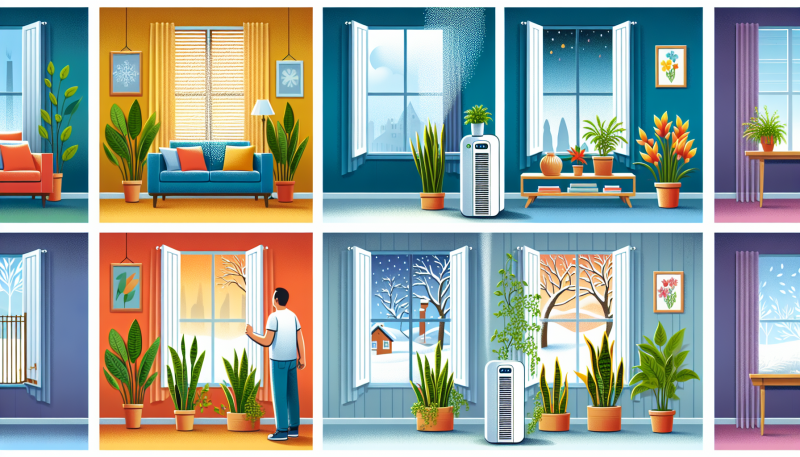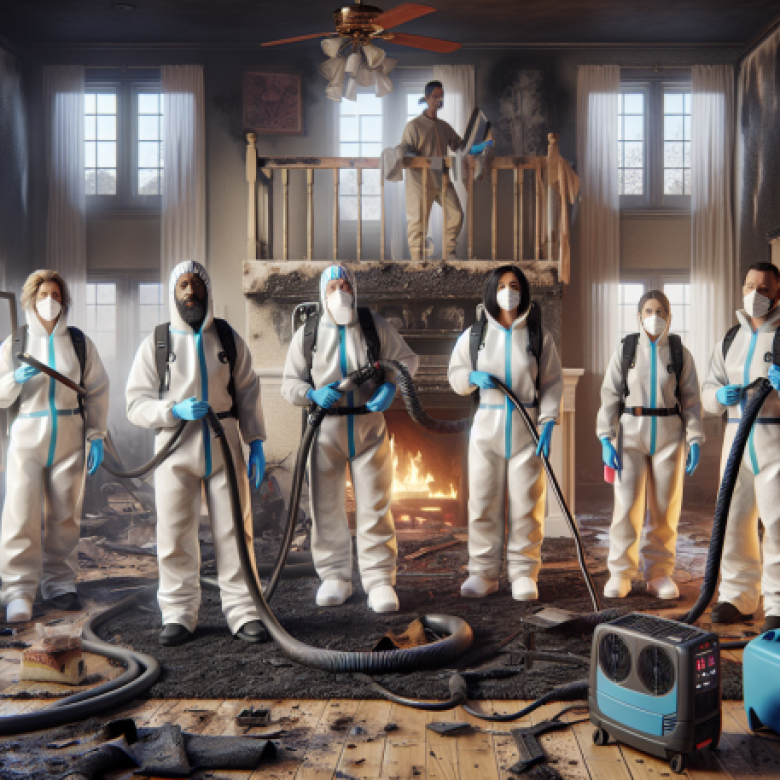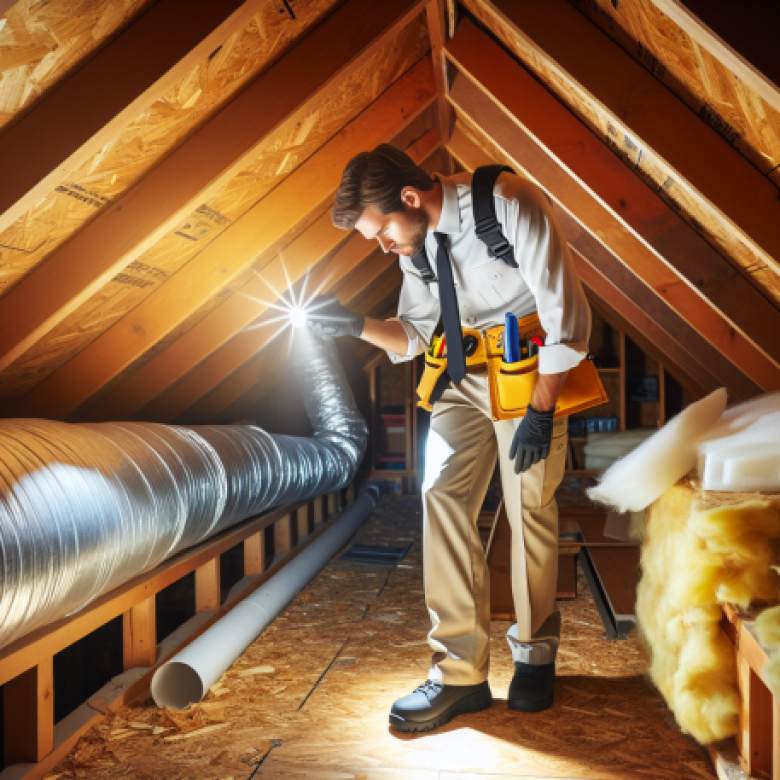Indoor air quality is a crucial aspect of maintaining a healthy living environment. Whether it’s your home or office, ensuring that the air you breathe is clean and free from pollutants can significantly impact your health and well-being. In this comprehensive guide, we’ll explore seasonal tips to improve indoor air quality, focusing on practical steps you can take throughout the year. We’ll also highlight the importance of professional services like those offered by Projekt Property Restoration, including commercial and residential property restoration, water damage restoration, mold assessment and remediation, fire damage restoration, and biohazard cleanup.
Understanding Indoor Air Quality
What is Indoor Air Quality?
Indoor air quality (IAQ) refers to the air quality within and around buildings and structures, especially as it relates to the health and comfort of building occupants. Poor IAQ can lead to various health issues, including respiratory problems, allergies, and even long-term diseases. Factors affecting IAQ include pollutants like dust, mold, chemicals, and even outdoor air pollution that infiltrates indoor spaces.
Why is Indoor Air Quality Important?
Good IAQ is essential for maintaining a healthy living environment. It can prevent health issues such as asthma, allergies, and other respiratory conditions. Moreover, it can improve overall comfort and productivity, whether at home or in the workplace. For businesses, maintaining good IAQ can also enhance employee satisfaction and reduce sick days.
Common Indoor Air Pollutants
Some common indoor air pollutants include:
- Dust and Pet Dander: These can trigger allergies and asthma.
- Mold: Mold spores can cause respiratory issues and other health problems.
- Volatile Organic Compounds (VOCs): These are emitted by household products like paints and cleaning supplies.
- Carbon Monoxide: This odorless gas can be deadly in high concentrations.
- Radon: A naturally occurring radioactive gas that can cause lung cancer.
Seasonal Tips for Improving Indoor Air Quality
Spring: Fresh Beginnings
Spring is a time of renewal, making it the perfect season to focus on improving your indoor air quality. Here are some tips:
Deep Cleaning
Spring cleaning isn’t just a tradition; it’s a necessity for maintaining good IAQ. Dust and allergens accumulate over the winter months, so a thorough cleaning can make a significant difference.
- Dust and Vacuum: Use a vacuum with a HEPA filter to capture small particles.
- Wash Fabrics: Clean curtains, rugs, and upholstery to remove dust and allergens.
- Declutter: Reducing clutter can minimize dust accumulation.
Ventilation
As the weather warms up, take advantage of natural ventilation.
- Open Windows: Let fresh air in to dilute indoor pollutants.
- Use Exhaust Fans: In kitchens and bathrooms to remove moisture and odors.
Mold Prevention
Spring showers can lead to increased humidity, which can promote mold growth.
- Control Humidity: Use dehumidifiers to keep indoor humidity levels between 30-50%.
- Inspect for Leaks: Check for water leaks and fix them promptly to prevent mold growth.
For professional mold assessment and remediation, consider contacting Projekt Restoration.
Summer: Staying Cool and Fresh
Summer brings heat and humidity, which can affect IAQ. Here are some tips to keep your indoor air fresh:
Air Conditioning Maintenance
Your air conditioner plays a crucial role in maintaining good IAQ during the summer.
- Change Filters: Replace air filters regularly to ensure efficient operation.
- Clean Ducts: Dirty ducts can circulate dust and allergens throughout your home.
- Service Your AC: Regular maintenance can prevent breakdowns and improve efficiency.
Control Humidity
High humidity levels can lead to mold growth and discomfort.
- Use Dehumidifiers: Keep humidity levels in check.
- Ventilate: Use exhaust fans in bathrooms and kitchens to remove moisture.
Avoid Chemical Pollutants
Summer is a popular time for home improvement projects, but many products can emit VOCs.
- Choose Low-VOC Products: Opt for paints, adhesives, and cleaning products with low VOC emissions.
- Ventilate During Projects: Ensure good ventilation when using chemicals.
For professional dehumidification services, visit Projekt Restoration.
Fall: Preparing for Winter
As the weather cools down, it’s essential to prepare your home for the winter months to maintain good IAQ.
HVAC System Check
Your heating system will be in use soon, so make sure it’s in good condition.
- Inspect and Clean: Have your HVAC system inspected and cleaned by professionals.
- Change Filters: Replace filters to ensure efficient operation.
Seal and Insulate
Proper sealing and insulation can prevent outdoor pollutants from entering your home.
- Seal Cracks and Gaps: Use caulk and weatherstripping to seal openings.
- Insulate: Proper insulation can improve energy efficiency and IAQ.
Reduce Indoor Pollutants
As you spend more time indoors, it’s crucial to minimize indoor pollutants.
- Use Natural Cleaning Products: Reduce the use of chemical cleaners.
- Avoid Smoking Indoors: Tobacco smoke is a significant indoor air pollutant.
For HVAC system maintenance and other services, check out Projekt Restoration.
Winter: Keeping Warm and Healthy
Winter can pose unique challenges for maintaining good IAQ. Here are some tips to keep your indoor air healthy:
Ventilation
While it’s tempting to keep windows closed, proper ventilation is essential.
- Use Exhaust Fans: In kitchens and bathrooms to remove moisture and odors.
- Open Windows Occasionally: Even in winter, a brief period of ventilation can improve IAQ.
Humidity Control
Winter air can be dry, leading to discomfort and health issues.
- Use Humidifiers: Maintain indoor humidity levels between 30-50%.
- Monitor Humidity: Use a hygrometer to keep track of humidity levels.
Avoid Indoor Pollutants
With windows closed, indoor pollutants can accumulate.
- Limit Use of Fireplaces: Wood-burning fireplaces can emit pollutants.
- Use Natural Cleaning Products: Reduce the use of chemical cleaners.
For professional assistance with water damage restoration and other services, visit Projekt Restoration.
Professional Services for Maintaining Indoor Air Quality
Projekt Property Restoration
Projekt Restoration is your go-to water, fire, & mold restoration experts. We also offer mold assessment, biohazard cleanup, and reconstruction services. Our team provides comprehensive solutions to maintain and restore your property’s indoor air quality.
Water Damage Restoration
Water damage can lead to mold growth and other IAQ issues. Our water damage restoration services include:
- Assessment and Mitigation: Identifying and addressing the source of water damage.
- Drying and Dehumidification: Removing moisture to prevent mold growth.
- Restoration and Repair: Restoring your property to its original condition.
For more information, visit Projekt Restoration.
Mold Assessment and Remediation
Mold can significantly impact IAQ. Our mold assessment and remediation services include:
- Inspection and Testing: Identifying mold growth and its sources.
- Containment and Removal: Safely removing mold and preventing its spread.
- Restoration and Prevention: Restoring affected areas and implementing preventive measures.
For professional mold removal services, visit Projekt Restoration.
Fire Damage Restoration
Fire damage can leave behind smoke and soot, affecting IAQ. Our fire damage restoration services include:
- Assessment and Cleanup: Removing smoke and soot residues.
- Odor Removal: Eliminating lingering odors.
- Restoration and Repair: Restoring your property to its pre-fire condition.
For more information, visit Projekt Restoration.
Biohazard Cleanup
Biohazardous materials can pose serious health risks. Our biohazard cleanup services include:
- Assessment and Containment: Identifying and containing biohazardous materials.
- Safe Removal and Disposal: Safely removing and disposing of biohazardous materials.
- Sanitization and Restoration: Thoroughly cleaning and restoring affected areas.
For professional biohazard cleanup services, visit Projekt Restoration.
Conclusion
Maintaining good indoor air quality is essential for your health and well-being. By following these seasonal tips and seeking professional services when needed, you can ensure that the air you breathe is clean and healthy year-round. Projekt Restoration offers a range of services, including water damage restoration, mold assessment and remediation, fire damage restoration, and biohazard cleanup, to help you maintain and restore your property’s indoor air quality.
FAQs
What are the signs of poor indoor air quality?
Signs of poor indoor air quality include persistent allergies, respiratory issues, headaches, fatigue, and unpleasant odors. If you notice these symptoms, it may be time to assess and improve your IAQ.
How often should I change my HVAC filters?
It’s recommended to change your HVAC filters every 1-3 months, depending on usage and the presence of pets or allergies. Regular filter changes can improve IAQ and system efficiency.
Can indoor plants improve air quality?
Yes, indoor plants can help improve air quality by absorbing pollutants and releasing oxygen. However, they should not be relied upon as the sole method for improving IAQ.
What should I do if I suspect mold in my home?
If you suspect mold in your home, it’s essential to address it promptly. Contact a professional mold assessment and remediation service, like Projekt Restoration, to inspect and safely remove the mold.
How can I reduce indoor allergens?
To reduce indoor allergens, regularly clean and vacuum your home, use air purifiers, wash bedding and fabrics frequently, and minimize clutter. Additionally, consider professional cleaning services for thorough allergen removal.





